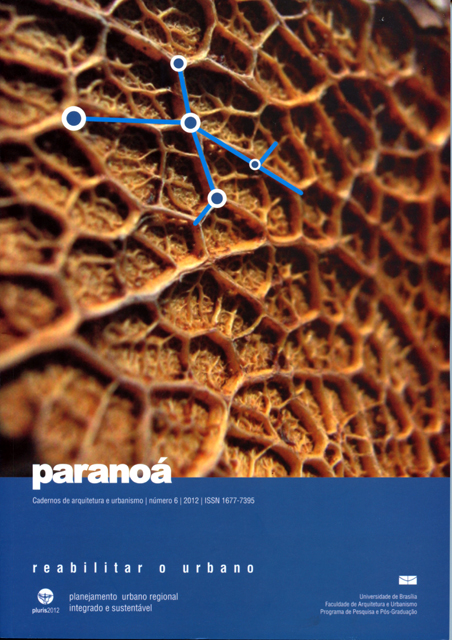Society and knowledge economy in urban requalification: the case of Lagoinha neighborhood in Belo Horizonte, Minas Gerais
DOI:
https://doi.org/10.18830/issn.1679-0944.n6.2012.12280Abstract
From the second half of the 20th century onwards, cities began a new process of transformation driven by society and the knowledge economy that has been consolidated with the advent of the post-industrial era. However, the urbanization pattern that characterizes the vast majority of Brazilian cities is still heavily impacted by the transformations that took place in the industrial period, keeping a significant portion of the population in precarious peripheries and without enjoying the benefits of urbanization. In this sense, having as object of study the city of Belo Horizonte and specifically the Lagoinha neighborhood, which has gone through a process of urban and social degradation, the objective is to present a set of guidelines and lines of action for the requalification of the district. The proposals formulated are guided by the restructuring of the urban mobility and public transport system in the capital of Minas Gerais, in addition to the new paradigms of contemporary cities.
Downloads
Downloads
Published
How to Cite
Issue
Section
License
Copyright (c) 2022 Paranoá: journal of Architecture and Urbanism

This work is licensed under a Creative Commons Attribution 4.0 International License.
Autores que publicam nesta revista concordam com os seguintes termos:
- Autores mantém os direitos autorais e concedem à revista o direito de primeira publicação, com o trabalho simultaneamente licenciado sob a Licença Creative Commons Attribution que permite o compartilhamento do trabalho com reconhecimento da autoria e publicação inicial nesta revista. http://creativecommons.org/licenses/by/4.0
- Autores têm autorização para assumir contratos adicionais separadamente, para distribuição não-exclusiva da versão do trabalho publicada nesta revista (ex.: publicar em repositório institucional ou como capítulo de livro), com reconhecimento de autoria e publicação inicial nesta revista.
- Autores têm permissão e são estimulados a publicar e distribuir seu trabalho online (ex.: em repositórios institucionais ou na sua página pessoal) a qualquer ponto antes ou durante o processo editorial, já que isso pode gerar alterações produtivas, bem como aumentar o impacto e a citação do trabalho publicado (Veja O Efeito do Acesso Livre).















